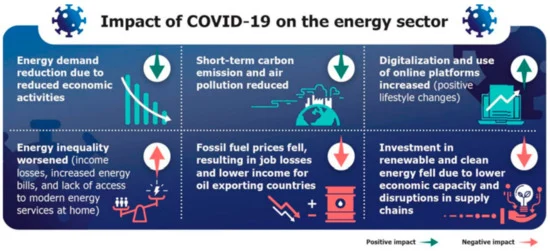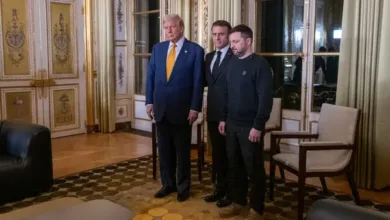The Politics of Energy: How the Global Energy Crisis is Reshaping Political Alliances

The global crisis of energy, caused by geopolitical conflicts, supply chain problems, and rising demand, has compelled countries to reassess their energy policies & alliances. Countries facing escalating energy costs, shortages, & a pressing demand for sustainable alternatives are at the forefront of this transformation. This dilemma is more than just an economic issue; it is intricately entwined with global politics, affecting alliances and pushing policy changes that will shape the future of energy usage.
The energy scene is more unstable than ever in 2024, and the political fallout is felt from Beijing to Brussels to Washington and beyond. This article looks at the current oil crisis, its political implications, and how it’s altering global alliances.
Table of Contents
The Root Causes of the Global Energy Crisis
Many of the causes that have contributed to the current energy crisis can be linked to the conflict in Ukraine. The battle disrupted critical energy supply routes, particularly in Europe, which had previously relied on Russian gas. European countries were forced to look for alternatives as a result of the wartime sanctions imposed on Russia, which further limited access to energy supplies.
Another key factor is the increase in global energy consumption as countries recover from COVID-19. The need for electricity, natural gas, and oil has increased as companies go back to full speed. Meanwhile, supply networks are straining to meet demand owing to production and transportation interruptions.
Finally, the worldwide shift towards clean energy has added to the dilemma. While the push for energy from renewable sources such as wind, solar, and hydrogen is critical for long-term sustainability, progress is slower than expected. With coal and nuclear power being phased out without adequate renewable infrastructure in place, several nations are experiencing energy shortages.

Europe’s Energy Struggles
The energy crisis is never more obvious than in Europe. The continent was especially susceptible when supply routes were cut off because of the war and sanctions because of its dependency on Russian natural gas. In response, Europe has moved to diversify its energy sources by forming new partnerships with nations across the Middle East, North Africa, as well as the United States.
The European Union (EU) has boosted connections with Qatar and Algeria to win liquefied natural gas (LNG) contracts, reducing its reliance on Russian energy. Additionally, the U.S. has increased its LNG shipments to Europe, making it a major participant in Europe’s energy security, and European countries are increasingly turning to the U.S. for assistance.
Previously one of the biggest consumers of Russian gas, Germany is now investing more in renewable energy. By 2030, the government hopes to attain its lofty target of 80% renewable energy use for electricity production. But as the nation experiences an energy shortage this winter, which results in a greater reliance on coal—an unsettling reality for a country that has pushed for climate action—this shift has also exacerbated short-term political tensions.
The U.S. Energy Policy: Balancing International and Domestic Interests
As the world faces an energy crisis, the United States is in a unique position. As one of the world’s leading oil and gas producers, the United States has benefited from growing energy exports, particularly to Europe. However, the administration of Vice President Biden is under political pressure to contain growing gasoline costs and inflation while remaining committed to climate goals.
Politically, the United States had to carefully balance these goals. As part of his climate program, President Biden has pledged to expedite the shift to renewable energy by investing in solar, wind, and electric vehicle technology. However, in order to have close relations with Europe during the crisis, it has been essential to export more fossil fuels, especially natural gas.
China and India: Energy Giants with Growing Influence
Energy policy is expected to be a major battlefield in the approaching 2024 presidential elections in the United States. While Democrats are stepping up their efforts to promote renewable energy, Republican candidates are advocating for more domestic production of gas and oil to reduce inflation and energy costs. The election outcome could have long-term implications for US energy policy and its involvement in global energy markets.
Two of the biggest energy consumers in the world, China and India, are becoming more and more important players in world energy politics. Both countries are experiencing energy crises, characterized by rising demand and inadequate resources.
China, the world’s top emitter of carbon, is seeking to strike a delicate balance. China is still mostly dependent on coal for electricity, despite the government’s pledge to become carbon neutral by 2060. Even as China looks to increase its capacity for renewable energy, recent power shortages brought on by severe weather and supply chain interruptions have compelled the country to increase coal production.
China’s energy partnerships with nations in the Middle East and Africa are also growing at the same time. China is making significant investments in infrastructure projects in nations including Pakistan, Saudi Arabia, Kenya, and power plants and pipelines carrying electricity. These projects are part of the Belt and Road Initiative of China (BRI). These investments not only secure China’s energy future, but also strengthen its geopolitical position.
In contrast, India is aggressively increasing its energy from renewable sources sector, with the goal of becoming the world’s top nation in solar energy. The Indian government established lofty goals for solar power, aiming to produce 500 GW of energy from renewable sources by 2030. India still imports a lot of coal and oil, though, because its energy needs are increasing so quickly. India’s energy policy has seen it improve connections with oil-producing countries such as Saudi Arabia & the UAE, while simultaneously working with the United States on clean energy programs.
The Rise of Renewable Energy and the Green Geopolitics
Renewable energy has become a topic of debate as well as a potential solution to the global energy dilemma. The worldwide transition to green energy is changing geopolitical alliances and introducing new dynamics into the international arena.
The European Union is establishing itself as a pioneer in the shift to renewable energy, setting lofty goals for wind, solar, & hydrogen power. European nations are collaborating to build infrastructure for offshore wind farms plus hydrogen, especially in the waters of the North Sea, where is expected to become a centre for the production of green energy.

In the United States, the inflation-reducing legislation of 2022 has directed billions of dollars towards renewable energy projects, laying the groundwork for the country to lead in environmentally friendly energy innovation. But nations like Saudi Arabia & Russia that depend on the export of fossil fuels are finding it difficult to deal with the quick push for renewable energy.
In order to manage this shift and keep its position as the world’s top oil producer, Saudi Arabia is investing in renewable energy. The kingdom has launched large-scale initiatives, such as Neom, a future metropolis that runs solely on renewable energy. At the same time, Saudi Arabia is a key player in the Organization of Petroleum Exporting Countries (OPEC), which influences global oil prices.
The Geopolitical Implications of the Energy Crisis
The global shortage of energy is not only redefining markets; it is also changing the geopolitical environment. Nations that were previously largely reliant on fossil fuel imports are expanding their energy portfolios, forming new alliances, and shifting power relations.
The rivalry between China and Russia and the West has intensified as a result of the crisis. Russia and China have signed new gas contracts and increased their collaboration on energy projects as a result of Russia’s exclusion from the European energy markets. Meanwhile, the United States as well as its European allies attempt to strengthen energy relations with Middle Eastern & North African countries, reducing their reliance on Russian energy.
These changes are likely to have a long-term impact on international politics. Energy will remain a key topic in international policy and diplomatic discussions as nations vie for availability of energy markets and resources.
Energy Crisis as a Catalyst for Change
One of the pivotal points in world politics is the current energy crisis. It has brought attention to the shortcomings of conventional energy systems and emphasised how urgently renewable solutions are needed. While the crisis brings obstacles, it also provides possibilities for countries to increase their energy security, form new partnerships, and hasten the transition to a more environmentally friendly future.
The political coalitions being forged now will influence international relations and global energy markets for many years to come as the globe navigates this energy crisis.
People also Reading
How European-Made Pagers Became Key in Hezbollah’s Deadly Attack?
When Israel and Iran Joined Hands to Fight a Common Enemy
UK prepares for record-breaking heat with a thunderstorm warning




